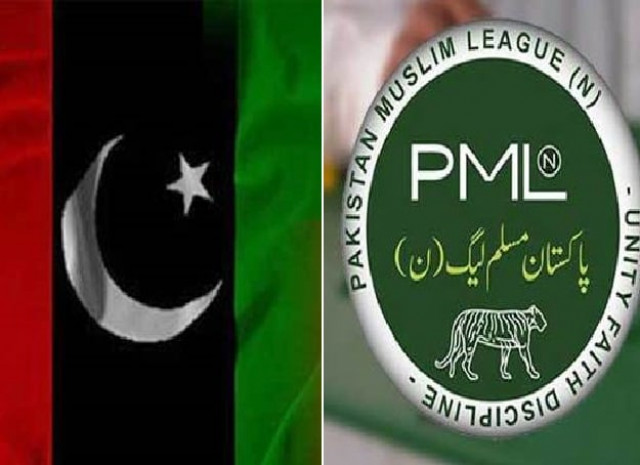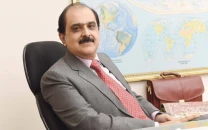Foreign funding case: PTI struggles to defend ‘self-prepared’ documents
PTI files petitions alleging PML-N, PPP received illegal foreign funding

PHOTO: File
After a month’s break, the three-judge bench of the apex court, headed by Chief Justice Mian Saqib Nisar, resumed hearings of the constitutional petitions seeking the disqualification of the PTI chairman and its secretary general, Jahangir Tareen.
The bench questioned Naeem Bukhari, the PTI counsel, over the shortcomings in the response he provided in order to establish a legal money trail for the purchase of the Bani Gala land.
PTI funding needs thorough probe: SC
The chief justice observed that when Khan claimed that the money for purchase of the land was provided by his then-wife Jemima Khan, the burden would be on him to provide documentary evidence as proof.
Justice Nisar said that in view of the recent judgment in the Panama Papers case, it had been held that the apex court could only decide cases on the basis of undisputed facts under Article 184(3) of the Constitution, and “if the material is disputed, it can ask for an inquiry”.
The honourable judge also noted that a payment of $126,000 from Jemima to Imran was still unaccounted for. “Why did Imran Khan not disclose his London flat in his 1997 nomination papers? This is very important in view of the recent judgment passed in the Panamagate case,” he said.
Foreign funding case: IHC declines PTI’s request to stay ECP proceedings
The bench also expressed serious concern over the documentary evidence, saying that no authentic documents were produced by the PTI leader to establish a money trail. It also termed the money trail chart submitted by Khan’s counsel as ‘self-prepared’.
Likewise, the court observed that even the documents provided were photocopies “which have secondary evidentiary value in the eyes of law and are usually inadmissible”.
The apex court further observed that no record was available on how the cricketer-turned-politician returned money to his former wife after the sale of his London apartment. “Why did Jemima not transfer the money directly into Imran Khan’s account?” the court questioned.
The bench went on to ask Bukhari why the PTI chairman had changed his stance regarding the purchase of the Bani Gala land before the top court.
PTI counsel struggles to provide money trail in foreign funding case
The chief justice observed that the respondent had changed the stance substantially in his written submissions.
The bench further questioned why Khan did not disclose the money which he had borrowed from his wife in his 2002 nomination papers or in the annual statement of assets and liabilities to the Election Commission of Pakistan (ECP).
After the PTI counsel had concluded his arguments, the chief justice said they had thoroughly gone through the documents and found some discrepancies requiring clarification. He also asked what legal inferences might be drawn if Khan failed to provide details of a banking transaction.
Another member of the bench, Justice Umar Ata Bandial, observed that the court was only concerned with records after 2002 as it was when Khan had become a public representative. He also said that the Panamagate verdict could not be cited in this case because that was a matter related to the state’s money.
ECP orders PTI to produce financial record by Sept 7
Later, the bench sought complete account details of the PTI chief’s offshore company within 10 days and adjourned the hearing till September 26.
Meanwhile, Akram Sheikh, the counsel for the petitioner, submitted that Khan had submitted divergent stances on various issues.
Sheikh said that in his initial concise, Khan claimed that he purchased the London flat in 1983. His affidavit filed on May 22, 2017 reiterated that claim, but the transfer deed attached to Khan’s submission showed that the transfer took place on April 2, 1984, he added.
Counter case
The PTI, meanwhile, filed separate petitions in the top court on Tuesday claiming that the Pakistan Muslim League-Nawaz (PML-N) and the Pakistan Peoples Party (PPP) had received funds from prohibited foreign sources.
PTI leaders Asad Umer and Shireen Mazari, through their counsel Chaudhry Faisal Hussain, filed the petitions against the PML-N and the PPP respectively. In their petitions, the PTI leaders claimed that the parties had illegally received funds from abroad.
Umer submitted that former PM Nawaz Sharif had handed over Rs100 million to his party, which later returned Rs40 million to Sharif, but details of those transactions were not submitted to the ECP.
Mazari stated in her petition that the PPP received funds from abroad but did not inform the ECP about it.
The two PTI leaders requested the court to order an inquiry against the two parties and stop them from using their election symbols for any polls in the interim.



















COMMENTS
Comments are moderated and generally will be posted if they are on-topic and not abusive.
For more information, please see our Comments FAQ